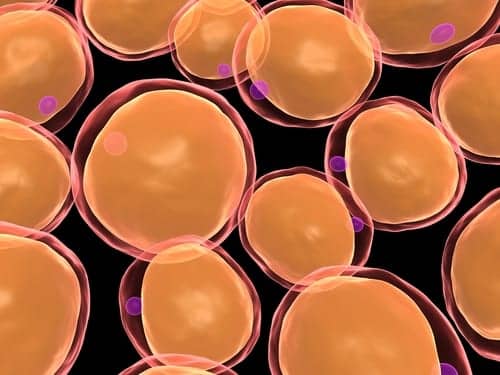
Sleep deprivation has long been associated with impaired brain function, causing decreased alertness and reduced cognitive ability. The latest finding, published by University of Chicago Medicine researchers in the October 16 issue of the Annals of Internal Medicine, is the first description of a molecular mechanism directly connecting sleep loss to the disruption of energy regulation in humans, a process that can lead over time to weight gain, diabetes, and other health problems. The study suggests that sleep’s role in energy metabolism is at least as important as it is in brain function.
“We found that fat cells need sleep to function properly,” said study author Matthew Brady, PhD, associate professor of medicine and vice-chair of the Committee on Molecular Metabolism and Nutrition at the University of Chicago.
Brady said body fat plays an important role in humans.
“Many people think of fat as a problem, but it serves a vital function,” he said. “Body fat, also known as adipose tissue, stores and releases energy. In storage mode, fat cells remove fatty acids and lipids from the circulation where they can damage other tissues. When fat cells cannot respond effectively to insulin, these lipids leach out into the circulation, leading to serious complications.”
Esra Tasali, MD, assistant professor of medicine at the University of Chicago and co-senior author, led the recruitment of six men and one woman, all young, lean, and healthy. Each volunteer went through two study conditions, at least 4 weeks apart. In one, they spent 8.5 hours a night in bed for 4 consecutive nights. In the other, they spent 4.5 hours in bed for 4 nights. Food intake, strictly controlled, was identical under both study conditions.
On the morning after the fourth night following both the long and short sleep conditions, each volunteer took an intravenous glucose tolerance test, which measures total-body insulin sensitivity. The researchers performed a biopsy, removing abdominal fat cells from the area near each volunteer’s navel. Then they measured how these fat cells responded to insulin.
The researchers assessed insulin sensitivity at the molecular level by measuring the phosphorylation of a protein called Akt within fat cells. Akt phosphorylation is a crucial early chemical step in the cell’s response to insulin.
After 4 nights of short sleep, total-body insulin response decreased by an average of 16%. The insulin sensitivity of fat cells decreased by 30%. This reduction is comparable to the difference between cells from obese versus lean participants or from people with diabetes versus non-diabetic controls.
They found that the sleep-deprived study participants had a decreased response to a range of doses of insulin. It took nearly three times as much insulin to provoke half of the maximum Akt response in volunteers who had been deprived of sleep.




